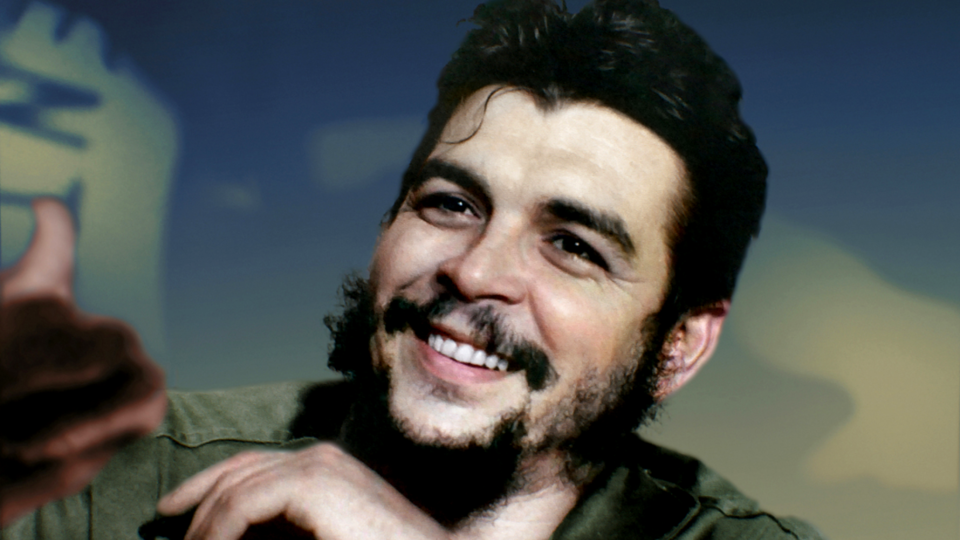
[ad_1]
54 years after the execution of Ernesto Guevara In Bolivia, its image and its way of life, transformed into an emblem, reference and support of political identities, still persists in the field of the quarrel of meaning and refuses to seal a single meaning.
In communication with AM750, Juan Martin Guevara He recounted how he learned of his brother’s death, reviewed his last days and said that Che’s legacy will continue as long as inequality continues to exist in the world.
“Many in Argentina think that Che was more Cuban than Argentinian. In a speech he said it shouldn’t be surprising that an Argentinian went to fight in Cuba because Marti lived there and Marti spoke about united America. Che always said he felt Mexican in Mexico, Guatemalan in Guatemala and Peruvian in Peru, but in essence he was Argentinian and he could never forget the mate and the barbecue. “, expressed Juan Martín in a dialogue with Felicitas Bonavitta at 40.
–How did you hear the news of Che’s death?
-I found out the next day when I saw your photo in the newspapers. At that time, he was working in the delivery of dairy products. I got up very early and very early I saw his image in the newspapers. All day long I had to work wondering if it was true or not because they had given the same news multiple times. But this tour was shocking to me because it immediately gave me the feeling that it was. When I finished working I met my family and we discussed whether this was fake news or not. There it was decided that my brother Roberto will go to Bolivia to try to recognize the body. He traveled but the Bolivian army did not want to show him the body. Later, from Cuba, they told us that they were sure the body belonged to Che.
– What can you reconstruct from Che’s last days?
-Where as many intelligence services operate as at the time in Bolivia, it is difficult to arrive at the exact truth. What I am sure of is that Che was assassinated and did not die in combat. We know that the message reached the United States that “they had captured daddy” and from the United States, they gave the order to shoot the prisoner.
–Has your image of your brother changed over time?
-More than changing the image of my brother, it was accentuating me. I always say that I am Ernesto Guevara’s blood brother but I am a partner of Che’s ideas. My closeness to him is with his ideas, his actions and his thoughts. With what he wrote and did. When he speaks of the people, he speaks of the exploitation of man by man. This is his concept and this is why he is a mortal enemy of capitalism, of the appropriation of others by the few.
-What was said in your house on the path that Che chose?
-The path of Che was quite a process. He doesn’t become Che Guevara overnight. There is a long way he goes that we have learned from his letters. On this path there are two crucial moments when one, looking back, realizes that they have been marked. One is in Guatemala with the coup d’état of (Juan Jacobo) Árbenz. There he began to make contact with Cuban colleagues. The other moment is when he meets Fidel and the other comrades in Mexico and gets involved in what is July 26th. In Mexico, he already stops writing to us and telling us what he is doing until at some point we learn that he falls prisoner with his companions a few days before leaving on an expedition to Cuba. Ernesto was the last to be released because he was accused of being a Communist. When they left, they immediately got on the Granma and left. There, we have the certainty that he is embarking on this decision to fight for the freedom of Cuba.
-Who supports the legacy of Che Guevara today?
-I always say that the image of Che appears everywhere because the situation of the world is equal or worse than that of the world that Che wanted to change. It is worse in the sense of inequality, in the sense of inequality, in the sense of the powerful and the exploitation of man by man. For everything Che has fought, he is the same or worse. His legacy is struggling. Nothing is done without unity, organization, struggle, decision, strategies. This is the legacy. Of course, you need ethical value and quality. Galeano has a beautiful poem where he says that Che couldn’t disappear because what he thought he said and what he said he had done. This is the example of Che. We have to fight for freedom, sovereignty, independence if that is what we want to achieve. The road is long and difficult.
.
[ad_2]
Source link
 Naaju Breaking News, Live Updates, Latest Headlines, Viral News, Top Stories, Trending Topics, Videos
Naaju Breaking News, Live Updates, Latest Headlines, Viral News, Top Stories, Trending Topics, Videos